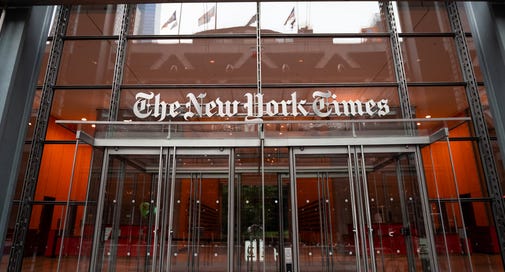Whoever Controls the Media, Controls the Mind
How mass media ownership affects the information ecosystem and attention economy
“Whoever controls the media controls the minds of the public.”
How do we know the things that we know?
The other day, I talked to my Mom and said, “You know — I just assume that everyone knows what I know about the media.” She explained that older folks often never learn how to be media literate, so this information is my attempt to help anyone who wants to know about media ownership.
Remember, no media can exist without an audience, and as good critical consumers, we can decide what we give our very powerful attention to.
What is Gatekeeping?
According to the Communication Encyclopedia, gatekeeping is the approach that emphasizes the movement of bits of information through channels, emphasizing decision points (gates) and decision-makers (gatekeepers). Gatekeeping is necessary if it is done ethically. Publications and news editors do it to bring citizens the most important news and ensure it is published according to journalistic standards.
Gatekeeping can have problems; however, because of mass media ownership and those who control what we see, I mentioned in my previous article that this is known as agenda setting.
To repeat, the agenda-setting theory states that the mainstream media sets the agenda of public discourse. It does this not so much by telling people what to think but rather what to think about. These agendas are set by those in power who own the media companies. Algorithmic adaptation of social media feeds takes this theory to a new level.
Mass Media Ownership
These top six companies control 90% of the media in the United States. Just 37 years ago, 50 companies controlled most American media. Now, 90% of the media in the United States is controlled by just six corporations: AT&T, CBS, Comcast, Disney, Newscorp, and Viacom.
In the realm of social media, you have X (owned by Elon Musk), TikTok (which has some national security issues due to its China-based ownership), Facebook, Instagram, and Threads (all under the Zuckerberg / Meta umbrella), and the newest more federated edition Bluesky (not owned by any single entity). Several data researchers have proven that Musk has created an algorithm on his social media X that depresses left-leaning viewpoints and elevates his viewpoints along with those on the right-wing political spectrum.
In traditional mass media and social media, a powerful few oversee what we see and read. The notion of journalistic objectivity, often touted by these elite-run outlets, serves as a façade for balanced reporting. But in truth, unbiased news is a myth. Journalists within these conglomerates answer to their corporate overlords, advancing their agendas. Expecting outlets like The Washington Post to impartially cover stories involving their owner, such as reports on Jeff Bezos’s personal life, is unrealistic.
Another prime example is The Washington Post and the LA Times, which chose not to endorse a Presidential candidate for the 2024 election. The Washington Post experienced a substantial subscriber exodus, which led to an erosion of trust. The mass exodus of subscribers withholding their attention will make a significant dent and certainly send a message.
Sinclair Broadcast Network
Many people must realize that mass media conglomerates also affect local news stations. According to an article in Stanford Business, media consolidation means less local news and more right-wing slant. Sinclair Broadcasting Group is already one of the most influential media companies in the country. It owns nearly 200 local television stations in almost 100 markets.
In 2018, a whistleblower stitched together a video showing a dystopian script that was strikingly pro-Trump and read across Sinclair news stations. You can watch the video; I embedded it below because you must see it to believe it. Boy, is it disturbing on so many levels.
Most recently, CNBC reported that Sinclair wants to sell some of its local affiliates. This would be great news in the face of a new Trump administration, depending on who buys them.
Here is a list of all of the stations that Sinclair Broadcast owns. Double-check to see if the one you watch in your market is on the list.
Aside from the fears of gatekeeping and agenda setting mentioned before, when a small number of individuals or corporations control a significant portion of the media landscape, there is a risk that their personal or corporate interests may influence the news content. This can manifest in various ways, such as selective reporting, story framing, or omission of specific perspectives.
Furthermore, media ownership concentration can lead to a lack of diversity in news content. When a few entities control a large portion of the media, there is a risk of homogeneity in the stories and perspectives. This can limit the range of voices and ideas represented in the news, leading to a less informed and diverse public discourse.
In a democratic society, having a plurality of voices and perspectives in the media landscape is crucial to ensure a robust and inclusive public sphere.
The influence of media ownership on news content can also have economic implications. Consolidating media ownership can lead to the closure or downsizing of smaller, independent outlets, which need help competing with the larger conglomerates.
Thus, it is essential to support smaller publications and non-profits. These days, many smart folks are publishing on substack and other newsletter-based formats (Hey! Like this one!).
To sum up, our news media ecosystem is owned by a few wealthy corporations, which have much control over what we see as news and the entire information ecosystem. We must keep our critical thinking skills sharp and know who controls the messaging.
Like what you read? Sign up for my newsletter below:




